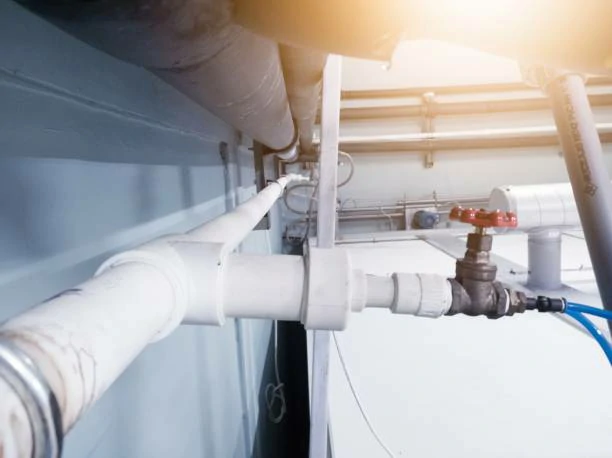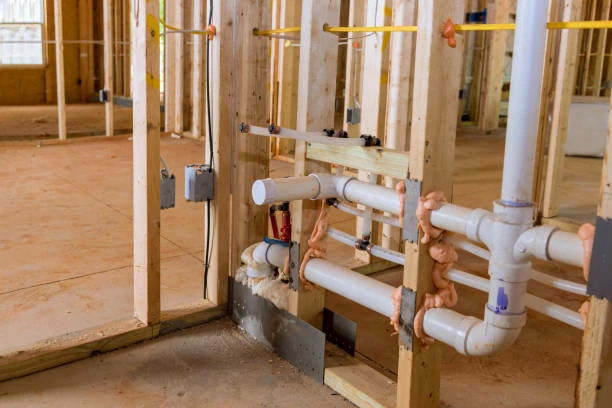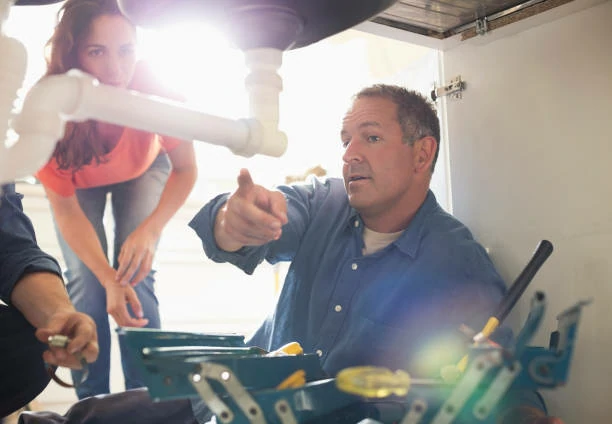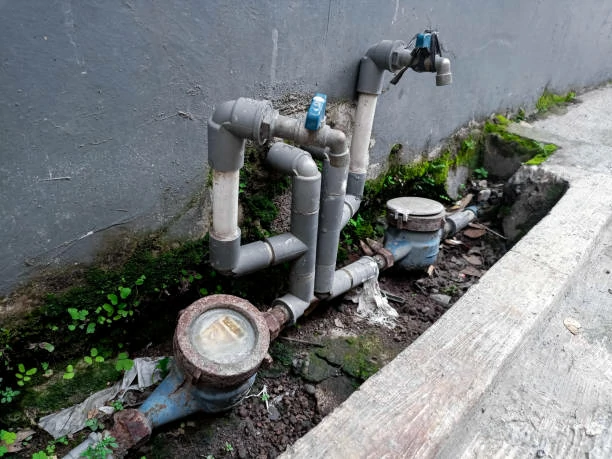High-Density Polyethylene (HDPE) tubes have gained significant popularity across various industries due to their exceptional insulation properties. These tubes provide effective solutions in applications where temperature control, electrical insulation, and chemical resistance are critical. Their unique characteristics make them an ideal choice for use in both industrial and residential settings. Understanding the insulation properties of HDPE tubes helps in appreciating their value and wide-ranging applications.
Thermal Insulation
HDPE tubes offer excellent thermal insulation, making them suitable for applications where temperature regulation is necessary. The material’s low thermal conductivity prevents the transfer of heat, which is crucial in maintaining the desired temperature within a system. For instance, in piping systems that carry hot or cold fluids, HDPE tubes help retain the temperature of the fluid, reducing energy loss and improving efficiency. This characteristic proves particularly beneficial in HVAC systems, where maintaining consistent temperature levels is essential for energy efficiency and comfort.
In addition, HDPE tubes perform well in environments with fluctuating temperatures. The material resists thermal expansion and contraction, minimizing the risk of damage or leaks in the system. This stability ensures the longevity of the piping system and reduces maintenance costs, making HDPE tubes a cost-effective choice for long-term applications.
Electrical Insulation
HDPE tubes also excel in electrical insulation, making them ideal for use in applications that require protection against electrical currents. The material’s high dielectric strength prevents the conduction of electricity, ensuring safety in systems where electrical wiring or components are present. This makes them a preferred choice in the telecommunications industry, where they are often used to encase and protect cables.
Moreover, HDPE’s electrical insulation properties make it suitable for use in underground installations. The tubes shield electrical cables from moisture and other environmental factors that could lead to short circuits or other electrical failures. This protection ensures the reliable operation of electrical systems, particularly in harsh conditions or remote locations.
Chemical Resistance and Insulation
The chemical resistance of them contributes significantly to their insulation properties. The material’s ability to resist chemical degradation ensures that the tubes maintain their structural integrity and insulation capabilities over time. HDPE tubes can withstand exposure to a wide range of chemicals, including acids, bases, and solvents, without losing their insulating properties. This resistance makes them ideal for use in chemical processing plants, where pipes often transport corrosive substances.
In addition, HDPE tubes resist environmental stress cracking, a common issue in materials exposed to chemicals. This resistance enhances the durability of the tubes and ensures that they continue to provide reliable insulation even in demanding environments. By choosing them, industries can ensure the longevity of their piping systems and reduce the need for frequent replacements.
Environmental Insulation
HDPE tubes provide effective environmental insulation, offering protection against external factors such as moisture, UV radiation, and temperature fluctuations. The material’s resistance to moisture prevents the absorption of water, which could otherwise lead to swelling, cracking, or other forms of damage. This moisture resistance proves particularly valuable in applications where the tubes are exposed to rain, humidity, or underground conditions.
UV radiation can cause significant degradation in many materials, leading to a loss of insulation properties and structural integrity. However, HDPE tubes resist UV damage, making them suitable for outdoor applications. This resistance ensures that the tubes maintain their insulating capabilities over time, even when exposed to sunlight and other environmental elements.
Noise Insulation
HDPE tubes also offer noise insulation properties, reducing the transmission of sound through piping systems. This characteristic proves beneficial in residential and commercial buildings, where noise reduction contributes to a more comfortable and quiet environment. The material’s density helps dampen vibrations and sound waves, minimizing noise levels in systems that involve the movement of fluids or gases.
In applications such as drainage systems, HDPE tubes reduce the noise associated with the flow of water or other substances. This noise reduction improves the quality of life in residential buildings and enhances the working environment in commercial spaces. By incorporating HDPE tubes into these systems, builders and engineers can achieve better acoustic performance without compromising on the efficiency or durability of the piping system.
Applications of HDPE Tubes in Insulation
The insulation properties of them make them suitable for a wide range of applications. In the oil and gas industry, HDPE tubes serve as an insulating layer in pipelines that transport oil, gas, and other substances. The material’s thermal insulation properties help maintain the temperature of these substances, preventing condensation, freezing, or overheating.
In the telecommunications industry, HDPE tubes encase and protect cables, ensuring that electrical signals transmit efficiently without interference. The tubes’ electrical insulation properties prevent signal loss and protect against electrical faults, ensuring the reliable operation of communication networks.
HDPE tubes also find applications in the construction industry, where they provide insulation in plumbing, heating, and cooling systems. Their resistance to chemicals, moisture, and UV radiation ensures that these systems operate efficiently and reliably over time. Additionally, the noise insulation properties of them make them a preferred choice in residential and commercial buildings, where reducing noise levels is a priority.
Cost-Effectiveness of HDPE Tubes
The insulation properties of them contribute to their cost-effectiveness. By maintaining thermal, electrical, and chemical insulation, these tubes reduce energy consumption and prevent damage to the systems in which they are used. This reduction in energy loss and maintenance costs leads to significant savings over time, making HDPE tubes a financially sound choice for various applications.
Moreover, the durability of them ensures that they provide long-lasting insulation, reducing the need for frequent replacements. This longevity translates into lower material and labor costs, further enhancing the cost-effectiveness of using HDPE tubes in industrial and residential settings.
Environmental Benefits
The insulation properties of them also offer environmental benefits. By reducing energy loss in heating and cooling systems, HDPE tubes contribute to lower greenhouse gas emissions. The material’s resistance to environmental factors such as moisture and UV radiation ensures that the tubes remain functional for extended periods, reducing the need for replacement and minimizing waste.
Additionally, HDPE is a recyclable material, which means that at the end of their life cycle, HDPE tubes can be reprocessed and used in new products. This recyclability aligns with sustainability goals and helps reduce the environmental impact of using HDPE tubes in various applications.
Best HDPE Tubes Manufacturers
| Company Name | Headquarter/Location | Year Founded |
| IFAN | ZhuJi,China | 1993 |
| Celanese Corporation | Irving, Texas, in the United States | 1921 |
| Dow | Midland, Michigan, in the United States | 1897 |
| JM Eagle | Livingston, New Jersey | 1982 |
| Cresline Plastic Pipe Co inc | Mechanicsburg, Pennsylvania, Council Bluffs, Iowa, Corsicana, Texas | 1949 |
Conclusion
HDPE tubes provide a comprehensive solution for insulation needs across a wide range of industries. Their thermal, electrical, chemical, and environmental insulation properties make them a versatile and reliable choice for applications that require protection and efficiency. By offering durability, cost-effectiveness, and environmental benefits, HDPE tubes stand out as a superior option for modern insulation challenges.
Contact
IFAN is a professional manufacturer with 30 years of experience, dedicated to producing high-quality plastic pipes, fittings, and valves. Our products include brass valves, PPR valves, as well as various pipes and fittings to meet different customer needs. Whether you need plumbing and drainage pipes or valve products, IFAN can provide a diverse range of high-quality, cost-effective products to support your projects. Below is our contact information.
We will reply your email or fax within 24 hours.
You can call us at any time if there is any question on our production.
For more information,pls visit our webside https://www.ifanplus.com/
Pls Mailto: [email protected]
Whatsapp: + 86 19857948982






